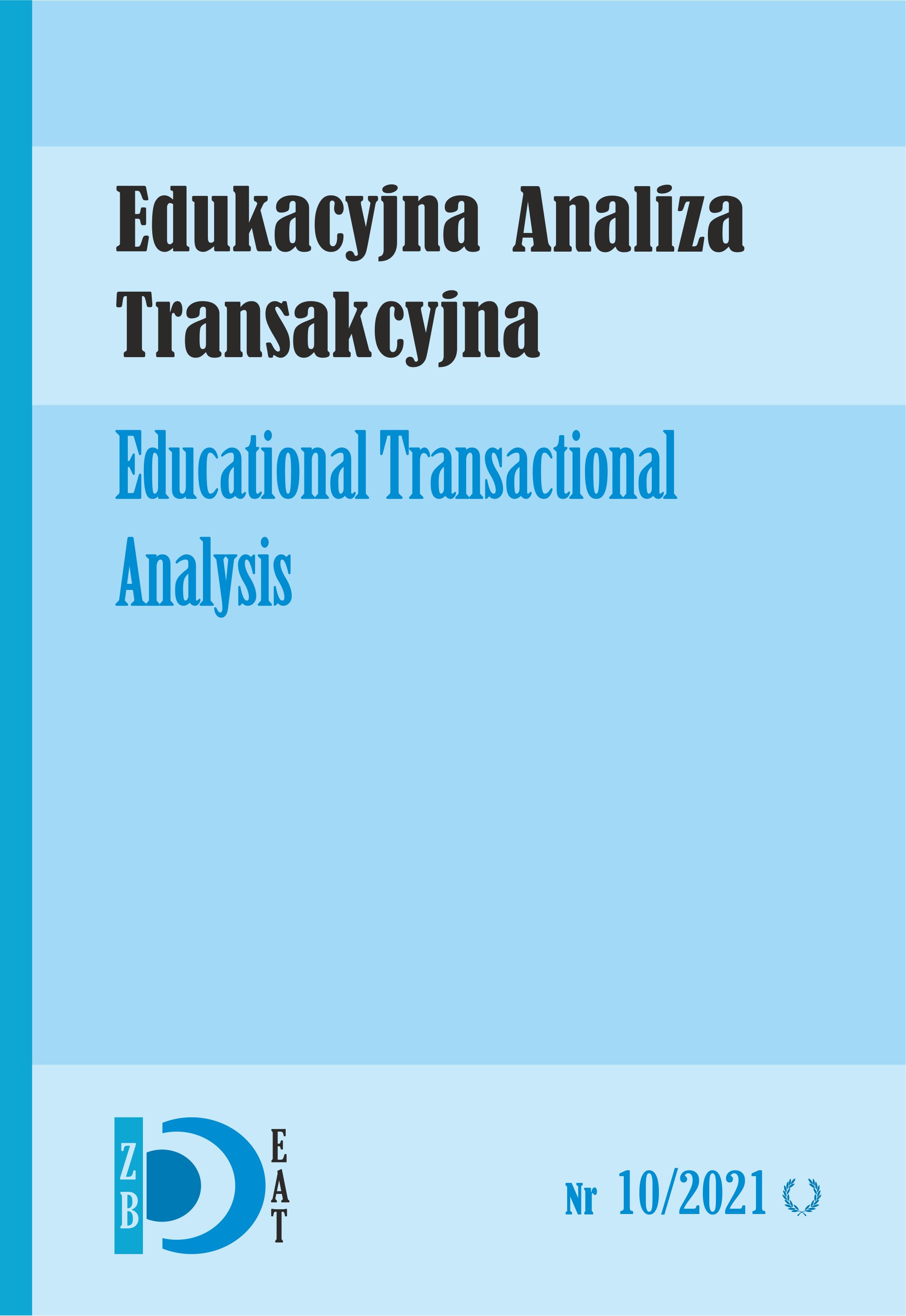How to Maintain Self-Esteem and Inner Balance in Discounting Transactions
DOI:
https://doi.org/10.16926/eat.2021.10.08Abstract
Discounting is a process that accompanies the life of every person. And, although this is one of the ways to distort reality, it is necessary for maintaining the stability of the world perception.
Discounting can refer to events, phenomena, tasks, objects, as well as people. It manifests itself in an internal dialogue. However, sometimes transactions are used in communication, in which internal discounting is transferred to the outside world and to other people (I call them "discounting transactions"). This often looks like non-constructive criticism.
In many cases, people experience unpleasant feelings when they are discounted.
The degree of unpleasant feelings and the possibility of restoring inner comfort depend on the Script.
The author examines this process using the concepts of Transactional Analysis and offers a specific express methodology for working with internal dialogue.
As a result of the application of the technique, the internal state of a person changes, self-esteem is restored and the possibility of Adult reaction to the Critic's stimulus appears.
Downloads
References
Berne E. Principles of Group Treatment. Menlo Park. CA. Shea Books. 1966
Berne E. What Do You Say After You Say Hello? London.Corgi. 1972
Clarkson P. Transactional Analysis Psychotherapy An Integrated Approach. London. Routledge. 1992
Schiff, A. and Schiff, J. Passivity. TAJ 1, 1971
Stuntz E. Multichairs Technique TAJ #2, 1973
M. Goulding, R. Goulding Psychotherapy of the New Decision. Moscow. Class. 1997
Steiner K. Treatment of Alcoholism. Prime - Euroznak. Olma - Press. 2004
Downloads
Published
How to Cite
Issue
Section
License
Copyright (c) 2022 Kateryna Bulhakova

This work is licensed under a Creative Commons Attribution 4.0 International License.
I am aware that the Educational Transactional Analysis journal is published under a Creative Commons license - Attribution (https://creativecommons.org/licenses/by/4.0/legalcode).
By submitting the article, I agree to make it available under this license

